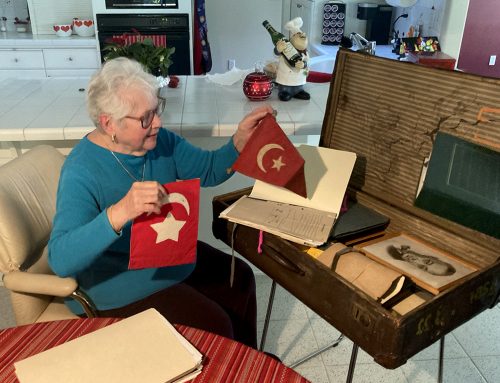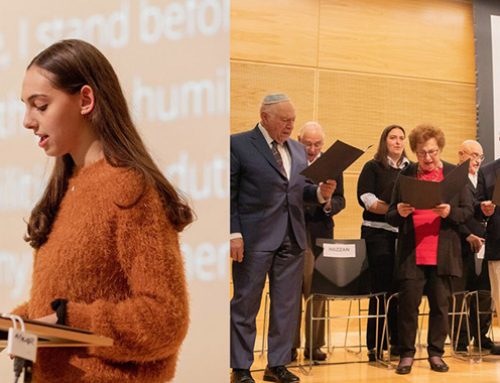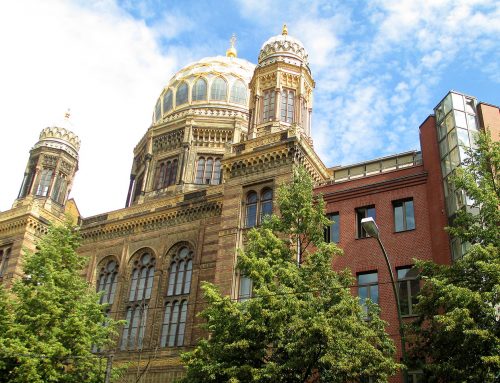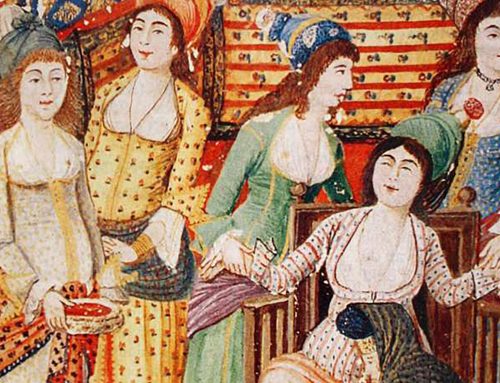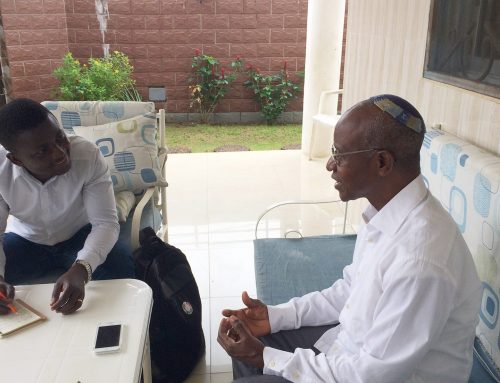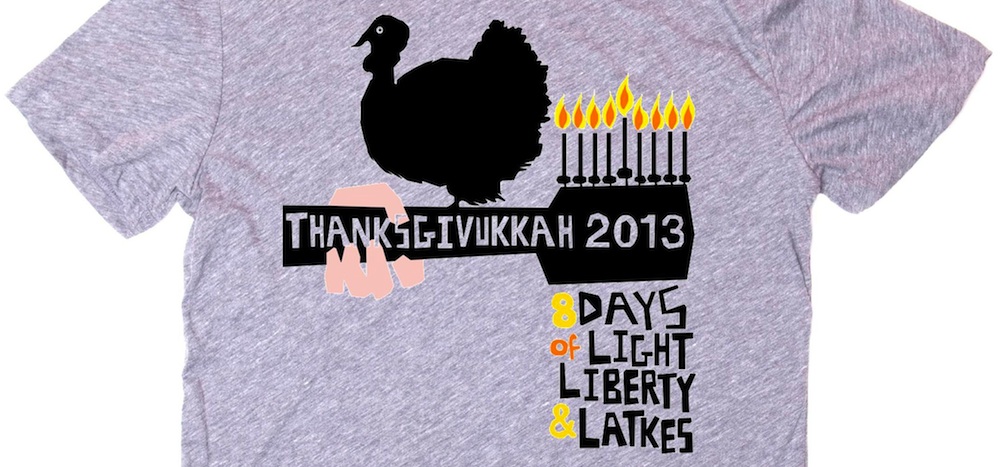
A t-shirt designed for Thanksgivukkah references Woodstock–implying that the holiday will be another American cultural watershed. Image from moderntribe.com.
By Rabbi Lauren Kurland
As you may have guessed from the incredibly close proximity of Labor Day and Rosh HaShanah this year, Hanukkah is also coming early—so early, in fact, that rather than coinciding with Christmas, its usual American holiday tango partner, this year it’s crashing Thanksgiving.
Yes, that’s right—as you may have heard, Thursday, November 28, 2013 is Thanksgivukkah 2013/5774—the mash up of the first full day of Hanukkah and Thanksgiving! (You know a holiday is official when it has its own website.)
Thanksgivukkah is as rare as its name is funky: According to this article, “the two holidays would’ve overlapped in 1861, but Thanksgiving wasn’t formally established until two years later, in 1863. That means Thanksgivukkah has never happened before—and it won’t happen again until 79811.”
This holiday being truly once in a lifetime, it’s certainly not an occasion to waste. Some bloggers have recommended taking full advantage of it by cooking fun Thanksgiving and Hanukkah mash-up dishes like cranberry sauce-filled sufganiyot or making your very own menurkey. There are even shirts for sale to commemorate the day.
But here’s a radical idea.
This November 28, let us celebrate the serendipitous merging of Thanksgiving and Hanukkah by gathering together with family and friends to give thanks, and only thanks.
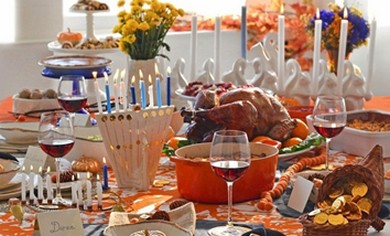
A Thanksgivukkah feast: menorah meets mashed potatoes; sufganiyot alongside stuffing.
Yes, share a meal together. Yes, light Hanukkah candles and play dreidel. Yes, laugh about the overlap of the holidays and marvel at its rarity.
But rather than celebrating Thanksgivukkah by stuffing our bodies with crazy concoctions of turkey-infused latkes and showering our children with shtick-y presents, let us be inspired to take a moment to say the sheheheyanu for reaching this moment and just being together. As Stefanie Zelkind’s eloquent column in ejewishphilanthropy puts it, we can “move beyond the kitsch” that has inevitably accompanied this calendar coincidence, and instead “use Thanksgivukkah as a launch pad for learning, giving, and values-based family activities.”
For as Americans and as Jews, Thanksgivukkah represents the overlap of deeply held and shared cultural values: the importance of gratitude, fortitude, perseverance and blessing.
What greater honor can we afford the merging of these two holidays than a quiet moment, bathed in the light of our friends and family while the candles burn low, dedicated to the awe of our blessings.
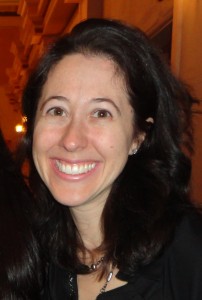 Lauren Kurland received ordination and a Masters in Jewish Education from the Jewish Theological Seminary. Lauren has served as associate director for educational resources at American Jewish World Service, and presently writes curriculum for supplementary schools through the Davidson School of Education. She and her family are delighted to reside in Seattle, where they are every day reminded of the natural beauty of this magnificent world.
Lauren Kurland received ordination and a Masters in Jewish Education from the Jewish Theological Seminary. Lauren has served as associate director for educational resources at American Jewish World Service, and presently writes curriculum for supplementary schools through the Davidson School of Education. She and her family are delighted to reside in Seattle, where they are every day reminded of the natural beauty of this magnificent world.

